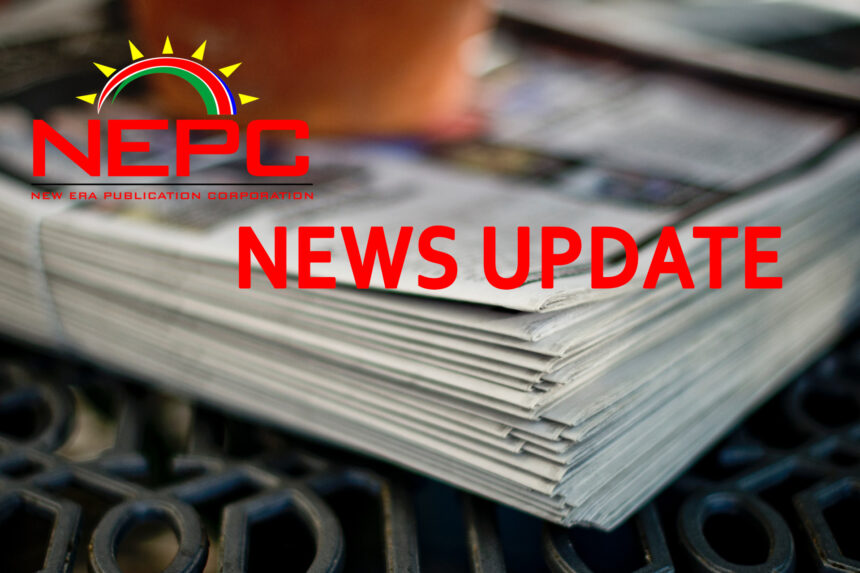The decision by the Electoral Commission of Namibia (ECN) to finally use its powers to hold political parties entrusted with public resources accountable for failing in their duty, should be welcomed by all and sundry.
The Commission last Friday directed National Assembly Speaker Peter Katjavivi to remove representatives of the Namibia Economic Freedom Fighters (NEFF) and Christian Democratic Voice(CDV) from the House of the people’s representatives.
The reasons propelled by the commission for a decision that has earned it praise and criticism in almost equal measure are premised on the parties’ failure to comply with certain provisions of the Electoral Act of 2014 dealing with the submission of financial statements.
Other reasons advanced include the organisations’ failure to submit their constitutions every year, as well as their failure to hold intra-party congresses to legitimise the configuration of their leadership.
Over the years, questions, including from the media, about the failure of both the NEFF and CDV to hold elective congresses fell on deaf ears, while those in charge continued running the parties like cuca shops, as if to say they were accountable to no one.
This is even though taxpayers pump millions into these entities annually through parliamentary funding. This is perhaps information that not every Namibian is privy to.
Those who genuinely want to preside over the country’s affairs must demonstrate their ability to lead, even through a display of basic administrative skills.
You can’t want to lead a country whose annual budget just exceeds N$100 billion if you can’t even account for or manage less than N$2 million entrusted to your organisation.
The public deserves and should demand better. Better means the highest possible standards of accountability, transparency and leadership.
It must be noted, however, that the two entities challenged the ECN’s decision legally and politically.
According to the NEFF, the ECN took the decision in haste. They are demanding the decision be rescinded on the basis that it is irrational and unreasonable.
Through their lawyers, NEFF also demanded that the commission sticks to the 30 June deadline it had given the party.
Meanwhile, it is the CDV’s view that the commission has declared war against them.
According to the CDV, its member Gotthard Kandume was sworn in by a “Supreme Court judge. Who is ECN to recall us? They [the ECN] have declared war on us, but we will expose their mess.”
We leave that process to play out in our courts. But when it is all said and done, political parties need no reminder that they are dealing with both public funds and trust, two invaluable commodities that cut right through the heart of democracy and public administration.
They must account for each penny given to them. They can’t gamble with public money by simply reducing taxpayers to blind cash cows.
Accountability and transparency are sacrosanct to any self-respecting entity or individual, even more so for those who masquerade as the alternative to the status quo.
Needless to say, if the ECN’s decision to eject the three MPs from parliament was not sober, informed by facts, and exercised within the confines of the law, it would deal a blow to the institution’s credibility.
The next few days and weeks will determine how these episodes and the accusation that the electoral commission wants to be both referee and player in the political arena will end and impact the commission… and our democracy.
Kudos to the ECN for taking this bold step. Any political organisation which is found wanting must be brought to book.
Millions
For context, politics in Namibia can be a lucrative business.
Between 2015 and 2023, N$1.3 billion of taxpayers’ dollars were dished out to political parties represented in Parliament.
Broken down, between 2015 and 2020, taxpayers coughed up N$679.5 million for political parties. From 2020 to 2023, N$592 million was allocated to political formations from the State’s purse.
However, despite the huge amounts the public invests in these political entities, little is known about how this money is spent. Like any organisation, parties have operational expenditures, day-to-day affairs to run, bills to pay, and campaigns to finance every now and then.
But as New Era has so often in recent years reported, most political parties are run like briefcase companies, and have little to nothing to show for the millions they receive, and accountability, especially when it comes to political party funding, is non-existent.
Worse, without the necessary teeth to keep parties in check, the ECN’s hands—under whose auspices party funding resorts—are tied.
Consequently, most parties spent the public millions at their discretion, including on items such as vehicles for leaders and their spouses; dishing out loans to finance private agricultural activities of their leaders; paying leaders double salaries; and, in some instances, paying politicians whose roles have been reduced to sitting at home since being ejected from the National Assembly.
Little to nothing is mentioned about how these political parties have used or are using what they are deriving from the public to uplift the community socially and economically; the very communities [electorate] who voted for them.
Without votes, these political parties would be nowhere near the public millions.
The status quo, wherein parties spend taxpayers’ funds on nice-to-have things with impunity and for self-enrichment, cannot continue unabated at the expense of the voters. Well done, ECN!


